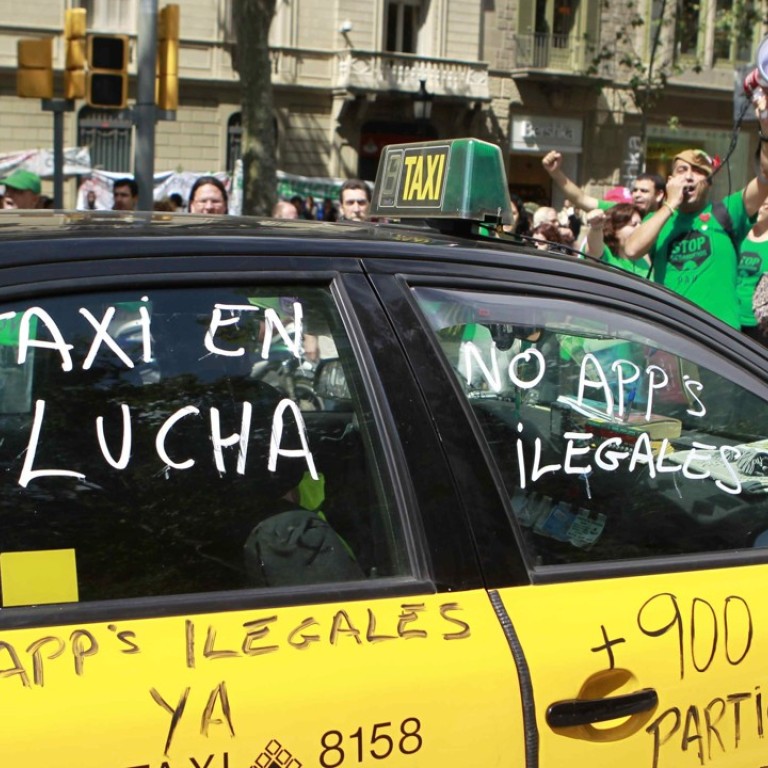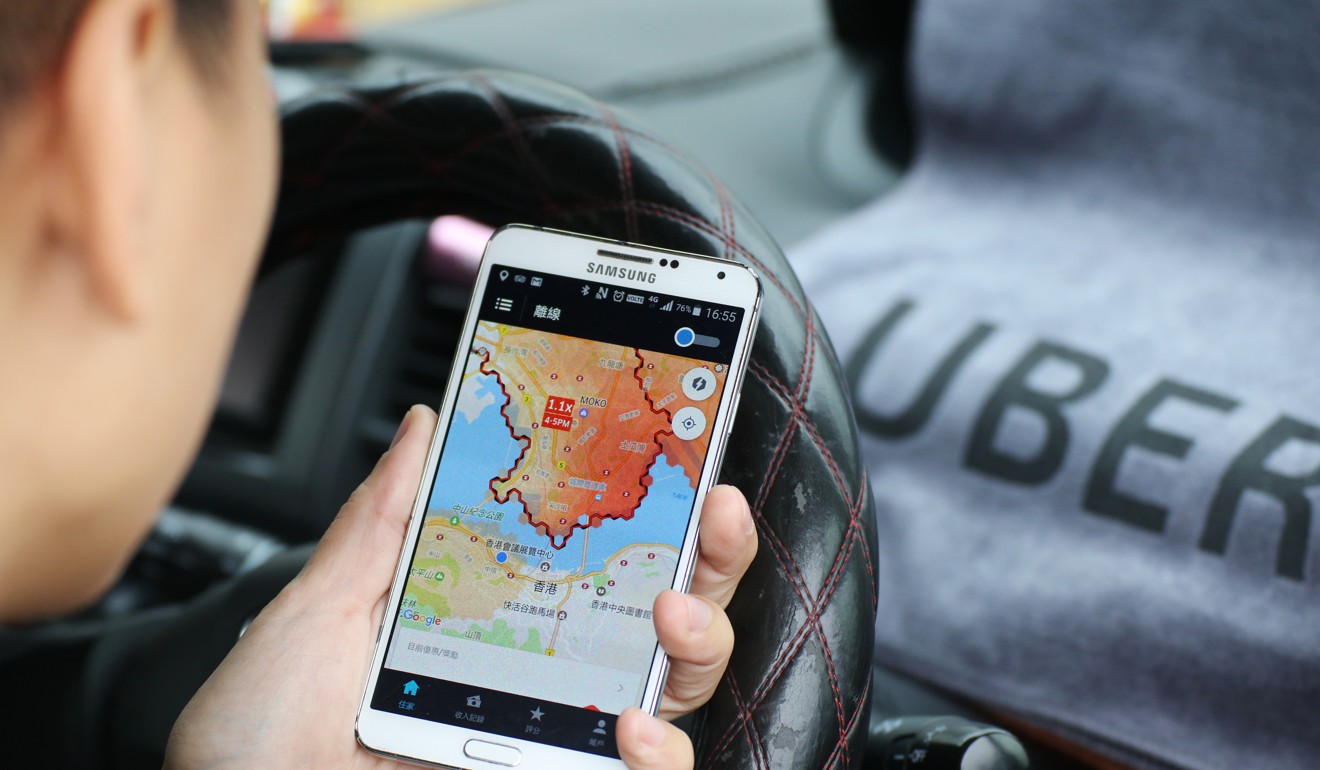
EU ruling on Uber will give Hong Kong an ‘excuse’ to block service, unless it follows taxi laws
Local taxi industry welcomes the decision, suggesting that the company rents cabs from operators if it wants to be legally back on the roads
Hong Kong’s taxi industry, which opposes Uber for not adhering to local regulations, welcomed the landmark ruling. Industry members said the firm must first abide by transport laws if it wanted to be back on the city’s roads legally.
Delivering the judgment, the European Court of Justice in Luxembourg said Uber was a service that connected “by means of a smartphone application and for remuneration, non-professional drivers using their own vehicle with persons who wish to make urban journeys”.

It said such an operation should be classified as “a service in the field of transport” under EU law. “Member states can therefore regulate the conditions for providing that service.”
Uber argued it was merely a service provider, connecting consumers with drivers in more than 600 cities.
The case was brought against the firm by a taxi drivers’ association in the Spanish city of Barcelona, saying that Uber should be seen as a cab company and should obey local industry rules.
In response, an Uber spokesman said: “This ruling will not change things in most EU countries where we already operate under transport laws.
“However, millions of Europeans are still prevented from using apps like ours. As our new CEO has said, it is appropriate to regulate services such as Uber and so we will continue the dialogue with cities across Europe.
Twenty-three Uber drivers deny using car for hire without permit
“This is the approach we’ll take to ensure everyone can get a reliable ride at the tap of a button.”
The road has been bumpy for Uber in several European countries, particularly in France where it was forced to overhaul its business model. In London the ride-hailing firm was deemed unfit to run a taxi service and was not allowed to renew its licence in September.
In Hong Kong, legislator Charles Mok, representing the information technology sector, said he believed the ruling would give the Hong Kong government “an excuse” to block Uber’s operation in the city.
“If the Hong Kong government has the will to legalise Uber, this ruling won’t have any impact on Hong Kong. On the contrary, this ruling serves as a very good reference for authorities to reject Uber [if they had intended to],” he said.
Chan Man-keung, chairman of the Association of Taxi Industry Development in Hong Kong, said the EU ruling confirmed their stance that if Uber wanted to operate locally, it had to abide by taxi regulations.
Apart from purchasing taxi licences which cost about HK$7 million each, Chan said Uber could rent a cab fleet from taxi operators and subcontract the service to drivers.
“Since Hongkongers really appreciate the high standard of service from Uber, it can rent our taxi vehicles and charge passengers a higher fare,” he said.
“But for this operation model to be possible it must forsake its partnership with private car owners.”

